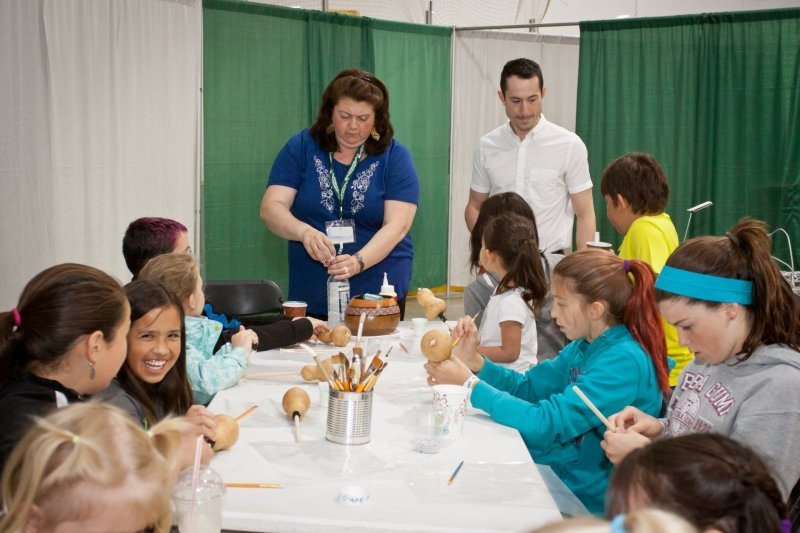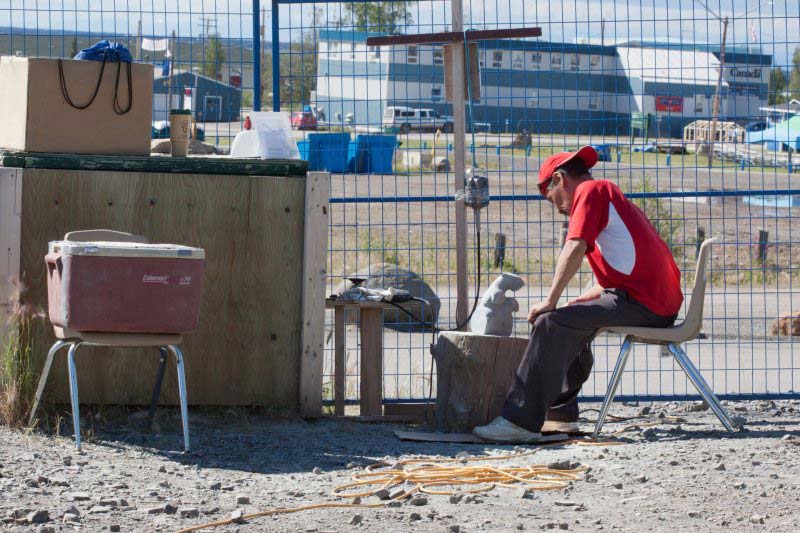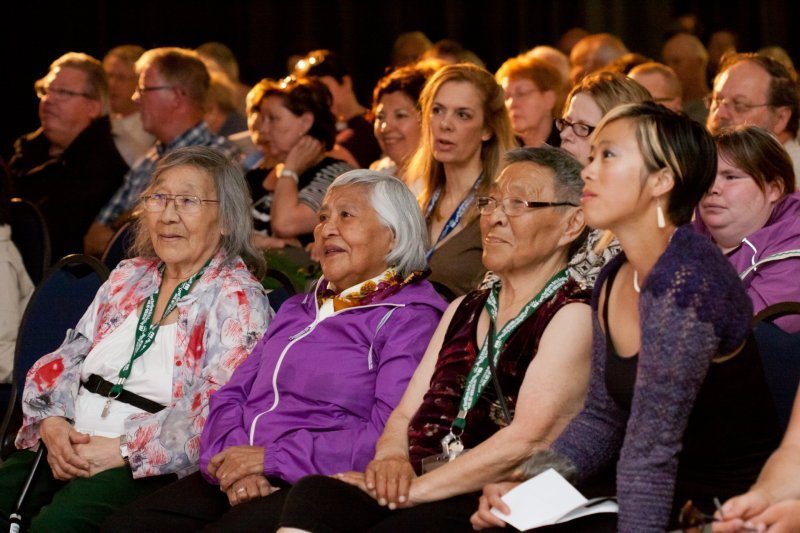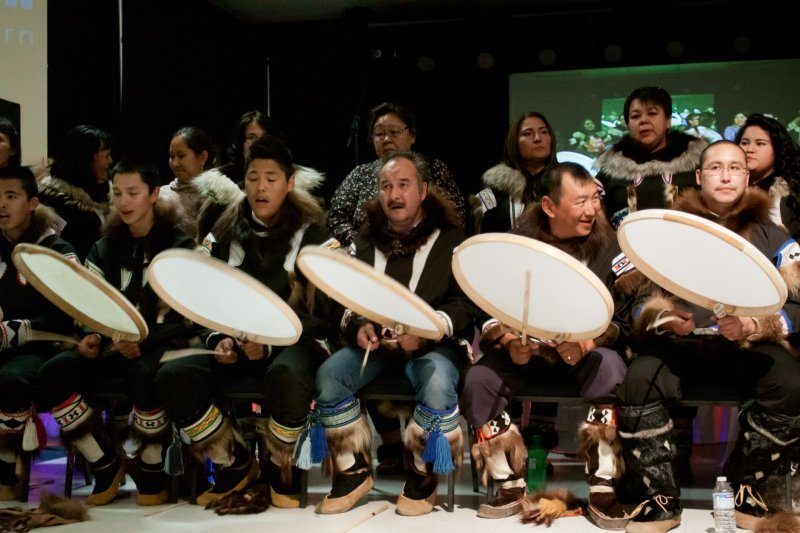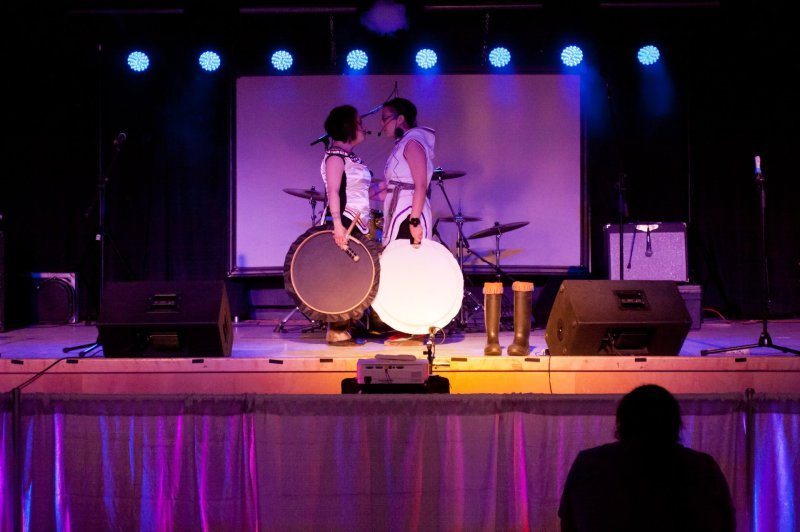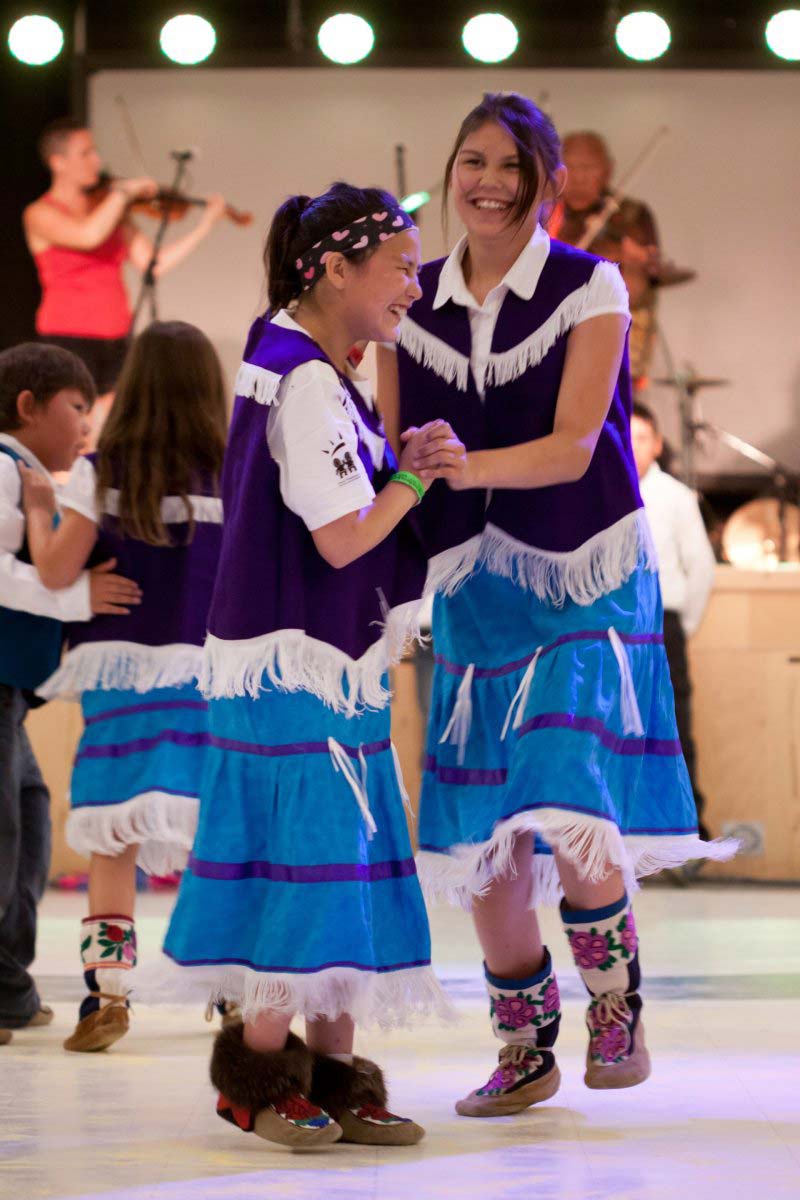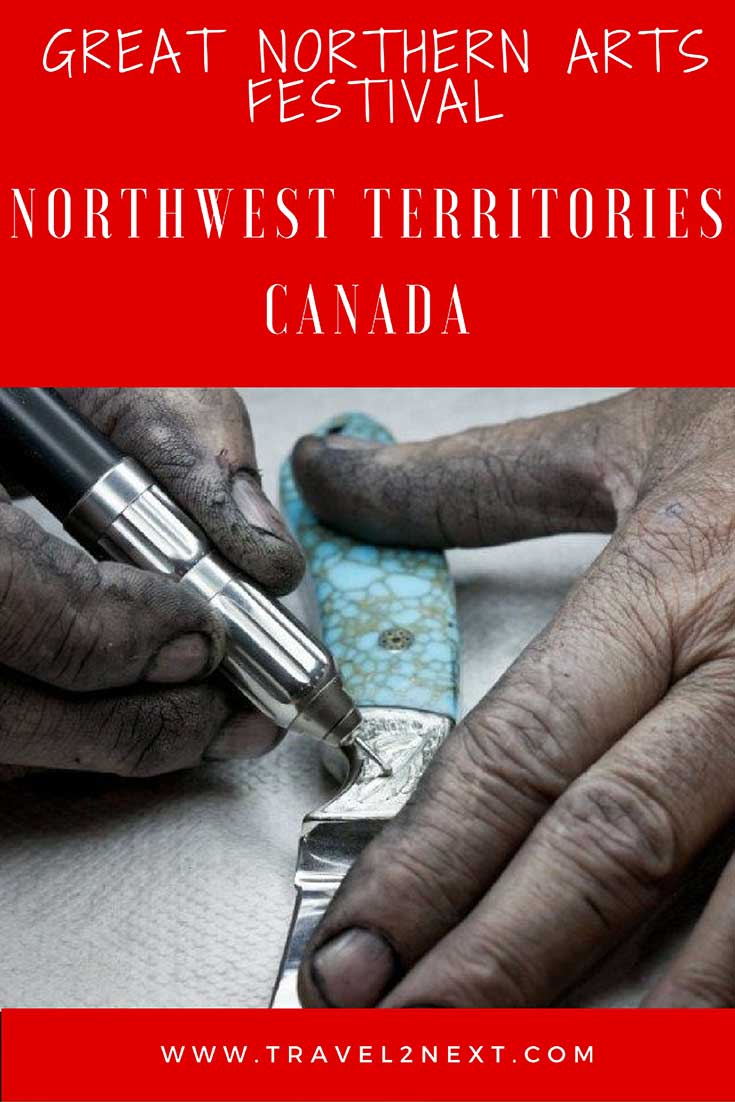At the Great Northern Arts Festival in Inuvik, Gwich’in First Nation artist Tania Larsson sits at a large round table covered with pieces of moose hide, containers of beads, sewing needles, and some porcupine quills soaking in bowls.
Several women are perched on the edge of their chairs, waiting for Larsson’s workshop on making traditional earrings to begin at Inuvik’s Great Northern Arts Festival.
Most visitors to the Northwest Territories are likely to land in Yellowknife. Here are some other things to do in Yellowknife, the capital of the Northwest Territories, including the Yellowknife Aurora Borealis.
Great Northern Arts Festival
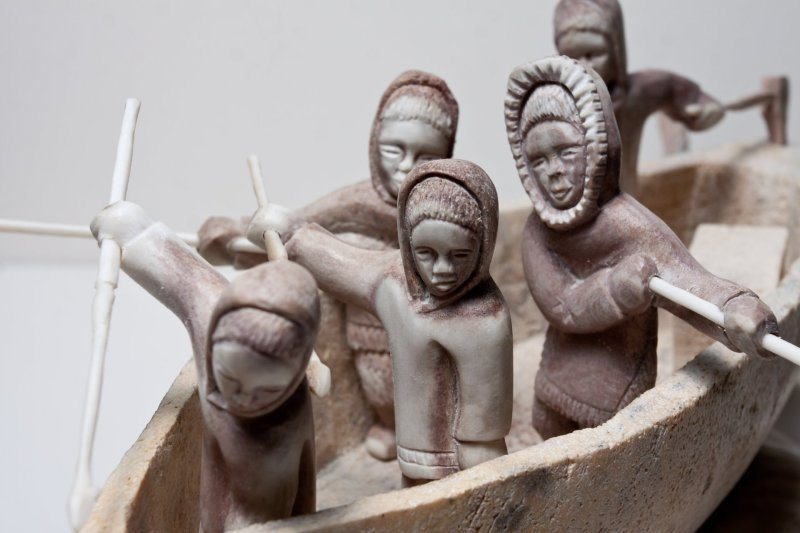
A man wanders over. “I hear you’re looking for some brains,” he tells Larsson.
Wait, it’s not what you think.
She needs them to soften a nine-foot moose hide that she’s tanning at home.
“Whatever you can spare, I’d be grateful,” she replies.
He nods.
“I’ll phone my sister and tell her you need two,” he says and walks away.
Then we settle in for an afternoon of learning and stories.
For 10 days every July, traditional and contemporary artists from across northern Canada gather at the Great Northern Arts Festival in Inuvik to share their work.
This community in Canada’s Northwest Territories, 200 kilometres inside the Arctic Circle, has been hosting the annual event since 1989.
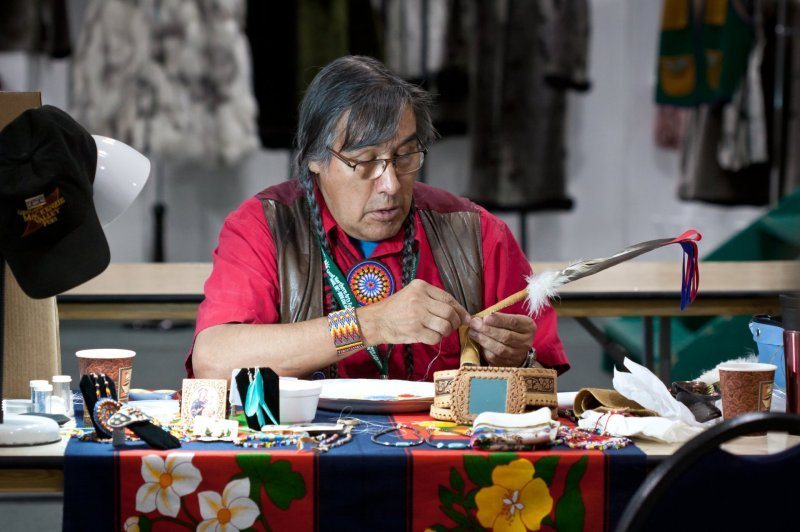
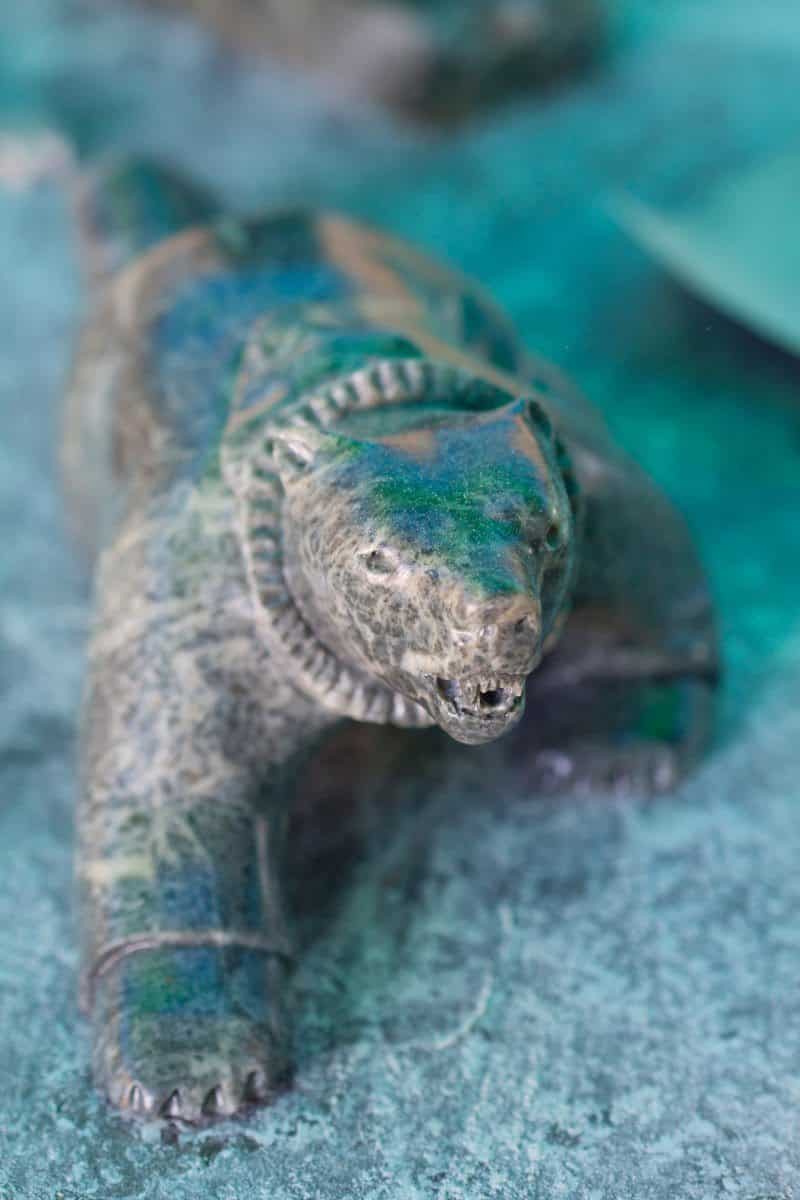
Activities at the Great Northern Arts Festival
A large gallery on site showcases and sells artists’ work ranging from sculptures and paintings to northern prints and clothing made from qiviut (muskox wool).
Festival-goers can chat with visiting artists while watching them create new work.
During artist-led public workshops, visitors can try their hand at traditional and contemporary crafts such as ulu knife making, sewing traditional sealskin mitts, soapstone carving, painting and printmaking.
Jewellery maker Martin Goodlife has attended more than 17 festivals.
Now, each one feels like a reunion of sorts with fellow artists.
“It’s like a working holiday,” he says. “I get to see old friends.”
It’s also a chance to pick up new techniques from one another.
“We’re such an eclectic group of artists that it’s an opportunity to learn from each other,” he observes.
Participants in Larsson’s session use beads to create a design on two small pieces of moose hide they’ve each cut out.
Porcupine quills threaded through small holes punched into the moose hide add another traditional touch.
I decorate my earrings with pink beads around the edges and a white one in the middle. As I finish threading the quills into one of my earrings, Larsson catches me sniffing my fingers.
“They smell like moose hide,” I say without a hint of feeling self-conscious.
“I’m glad you like it,” she laughs.
It’s a hide that she tanned herself.
Larsson’s mother, Olympic skier Shirley Firth, was from Inuvik and the nearby community of Aklavik but raised her daughters in France.
When the family returned to the Northwest Territories in 2005, Larsson was 15 years old.
She wanted to reconnect with her Aboriginal culture.
She sought out elders to teach her and then tanned her first moose hide in 2012.
“So much of our art is done with moose hide,” Larsson says, explaining why she decided to learn the arduous art of tanning.
After removing the flesh from the hide and scraping off the hair, the hide is stretched out and tied to a wooden frame.
It will be soaked and softened, wrung out and hung to dry again.
Once the hide is clean and sufficiently stretched, it’s smoked over rotten spruce chips in a process that takes weeks.
“I like to make jewellery with moose hide so that people wear it a lot,” Larsson says.
Caribou brains
By the time the workshop ends, a woman arrives with a Ziploc bag containing a pair of caribou brains. Larsson beams.
I’m beaming, too, but for a different reason.
I’ve just made my very own moose hide and porcupine quill earrings.
I can add it to the print I made of a musk ox during a printmaking workshop the night before.
Printmaker Louis Nigiyok, from the High Arctic community of Ulukhaktok, has been creating prints since learning the skill from his mother more than 30 years ago.
Using paper, brushes, ink and stencils, students in his session created a variety of images including two polar bears, a caribou, and a crane.
While everyone else that evening was busy creating beautiful art, I was making a mess of my musk ox.
A sheet of paper has two sides so that I can start over, I reasoned.
The second attempt turned out to be the charm, as I painted a musk ox and added details on his feet, hooves and nostrils.
The print now hangs on my fridge.
But it’s the sealskin mitts that I learned to make during yet another workshop at the Great Northern Arts Festival that I wear with the most pride.
Nunavut artist Gerri Sharpe showed a group of 10 women how to make them.
This inspired me to try making beaver mitts on my own at home.
That’s when I discovered that I had found brains of my own – creative brains, that is.
Check out this year’s programme at the Great Northern Arts Festival here.
Plan Your Trip
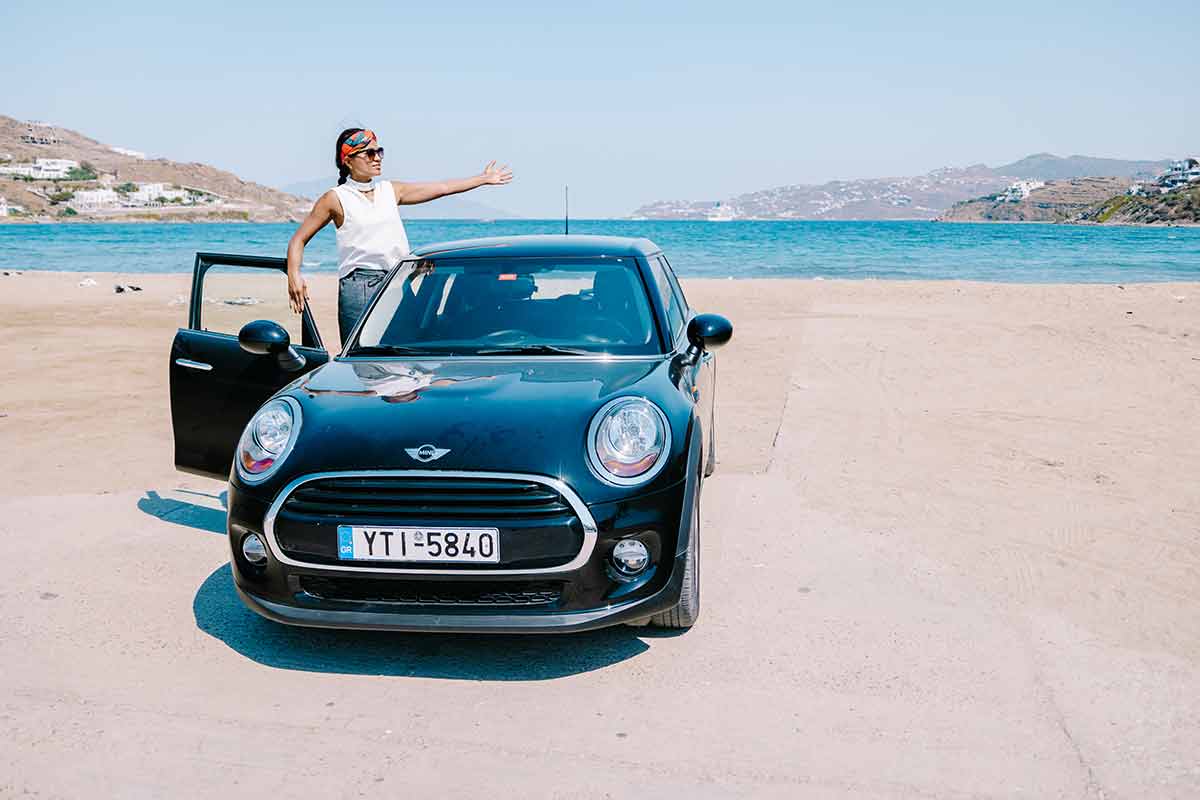
Rent A Car – Find the best car rental rates at Discover Cars. They compare car hire companies to provide you with the best deal right now.
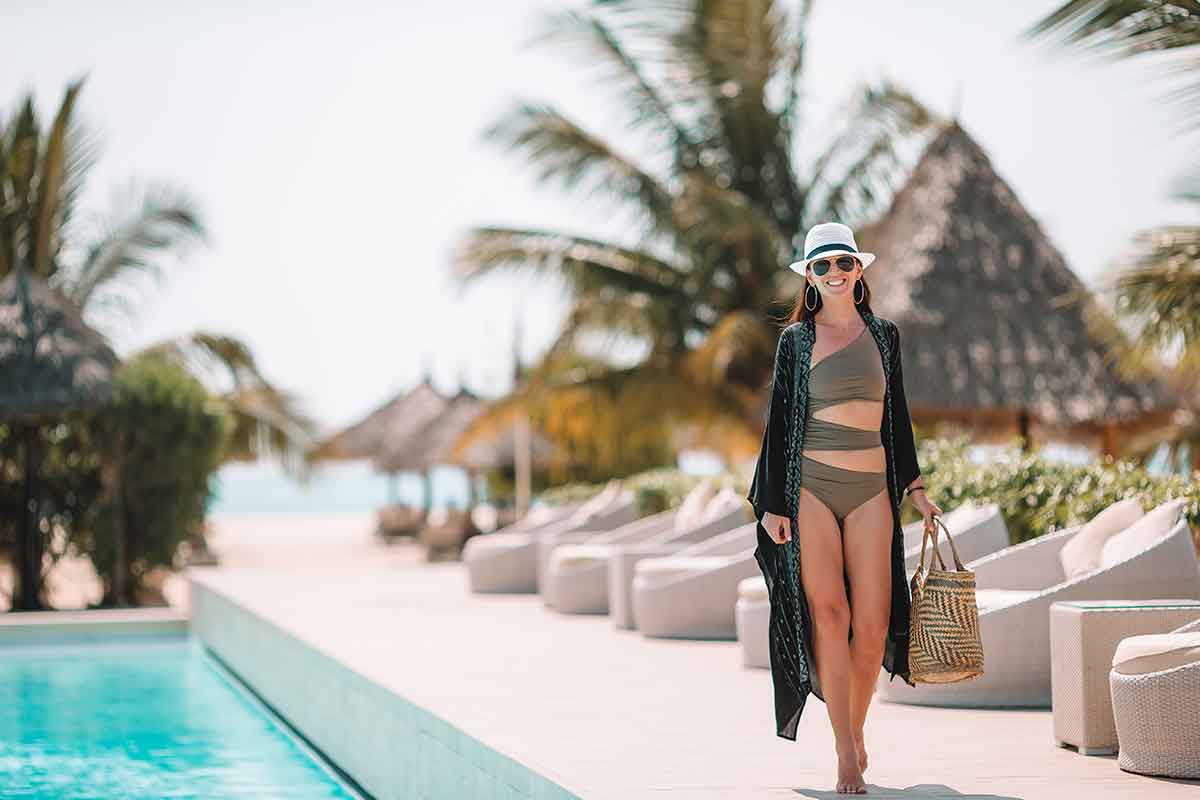
Find A Hotel – If you’re curious about this article and are looking for somewhere to stay, take a look at these amazing hotels.
